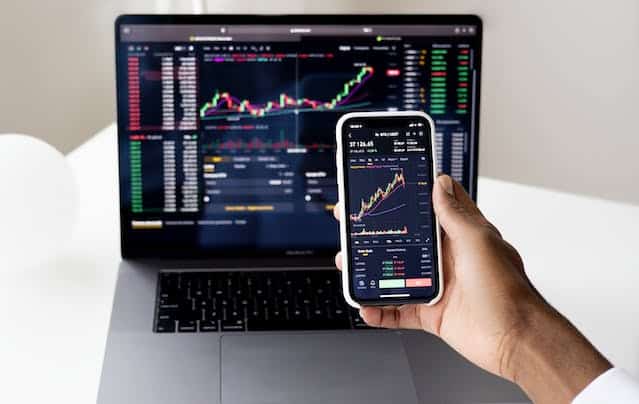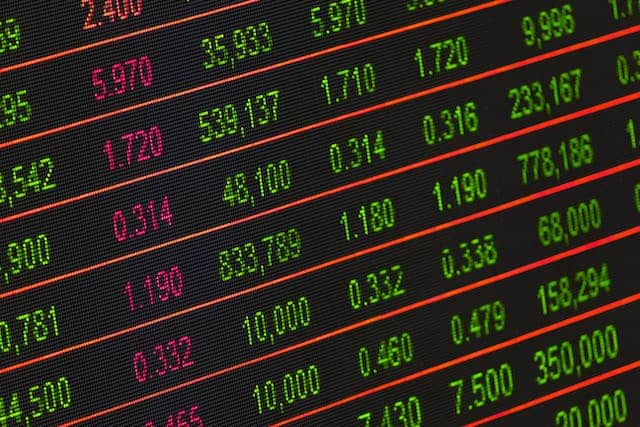What is the opening price in stock trading? How to calculate the opening price on the stock exchange?

Opening Price In Stock Trading
Well, the opening price is the price executed at the first order matching on a stock trading day. The opening price is determined by the auction method of the day, including both buying and selling prices.
The opening price includes the buying price and selling price of securities, which are determined by the auction method. During a stock trading day, there will be the first prices determined for buying or selling each type of security traded in the market. This is also the number that most investors are interested in each auction.
What is the opening price?
During a stock trading day, there will be a first price determined for buying and selling each type of securities traded in the market.
Opening price in stock trading
Determining the opening price brings high profit opportunities for investors
Thus, the Opening Price is the first price at which a stock purchase and sale occurs every day. In addition, it also refers to the first quoted price of a new securities issuance.
In addition to the opening price, people also often hear about ATO or in full, at the opening, which is the opening order. An opening order is an order in which an investor is ready to buy or sell at any price at a periodic trading session determined at the opening price. When matching orders, this order is usually given priority before limit orders (LO – Limit Order) and they are only valid when the market is open. The opening price will be determined in the first 15 minutes of the trading session each day (from 09:00 to 09:15).
What are the benefits of determining the opening price in stock trading?
Determining the opening price during a stock trading session has many benefits for investors, specifically as follows:
Opening price in stock trading

The opening price in stock trading has many important meanings
Find the equilibrium price right from the opening price of the trading session, because it allows determining the stock price after a complete set of buy and sell orders placed within a specified period of time.
Limiting excessive price fluctuations that arise from trading orders with unusual trading prices, creating the necessary price stability in the market.
Suitable for small markets with little trading volume, determining the opening price also allows saving transaction costs. For markets that have developed stably, it is not as necessary.
Reflects more substantially and specifically the movements of the general market because taking the price at the opening time will usually have the largest trading volume.
How to calculate the opening price of a stock trading session
The opening price in each trading session is determined quickly
The opening price is the first price at which a security transaction occurs each trading day. In addition, it also represents the first quoted price of a new securities issuance.
The opening price will include the buying price and selling price of securities and is determined by auction method. Because at the same time before the auction there will often be many buyers and many sellers, so a comparison must be made with the buying or selling price. In any stock trading day, there will be a first price determined for the buying and selling of each type of stock traded on the market and this price is called the opening price.
Depending on each exchange, there will be different opening price listing time frames, but they are all in the morning around 9:00 a.m. and start all trading steps that day.
Factors that can affect the opening price
The opening price of a stock is the price at which trading begins during the trading day. The opening price can be influenced by many factors, including:
Closing price of the previous trading session
The opening price is usually determined based on the closing price of the previous trading session. If the closing price of the previous trading session is high, the opening price of the following trading session also tends to be high. Conversely, if the closing price of the previous trading session is low, the opening price of the following trading session also tends to be low.
Macroeconomic information
Macroeconomic factors, such as GDP, inflation, interest rates, exchange rates, can affect stock prices. For example, if GDP increases, then companies’ earnings also increase, leading to an increase in stock prices. Conversely, if inflation increases, companies’ production costs increase, leading to a decrease in stock prices.
Company information
Company information, such as financial reports, news, and events, can affect stock prices. For example, if a company’s financial statements show good business results, its stock price tends to increase. Conversely, if a company experiences problems, its stock price tends to decrease.
Market psychology
Market sentiment, i.e. the emotions of investors, can also influence stock prices. If the market is optimistic, then stock prices tend to increase. Conversely, if the market is pessimistic, stock prices tend to decrease.
Additionally, there are a number of other factors that can influence the opening price, such as:
- Interest rates: High interest rates can cause investors to switch to lower-risk assets, leading to lower stock prices.
- Exchange rates: If a country’s currency strengthens, the share prices of foreign companies listed on that country’s stock exchange tend to fall.
- Unexpected factors: Unexpected factors, such as natural disasters and conflicts, can cause stock prices to fluctuate sharply.
Investors can place buy or sell orders when the floor is not open. In this case, the investor’s order will be in the “waiting for sending” status, then will be valid throughout the transaction period. Orders placed in the morning that have not been matched, partially matched and have not been canceled will continue to be valid in the afternoon order matching sessions before closing.
Thus, determining the opening price of any trading session is important and of interest to investors. For experienced investors, before the morning trading session begins and the opening price is announced, they have researched the market enough, 15 minutes from opening time, they have calculated the basis opportunity to get the best profit for their investment during the day.


